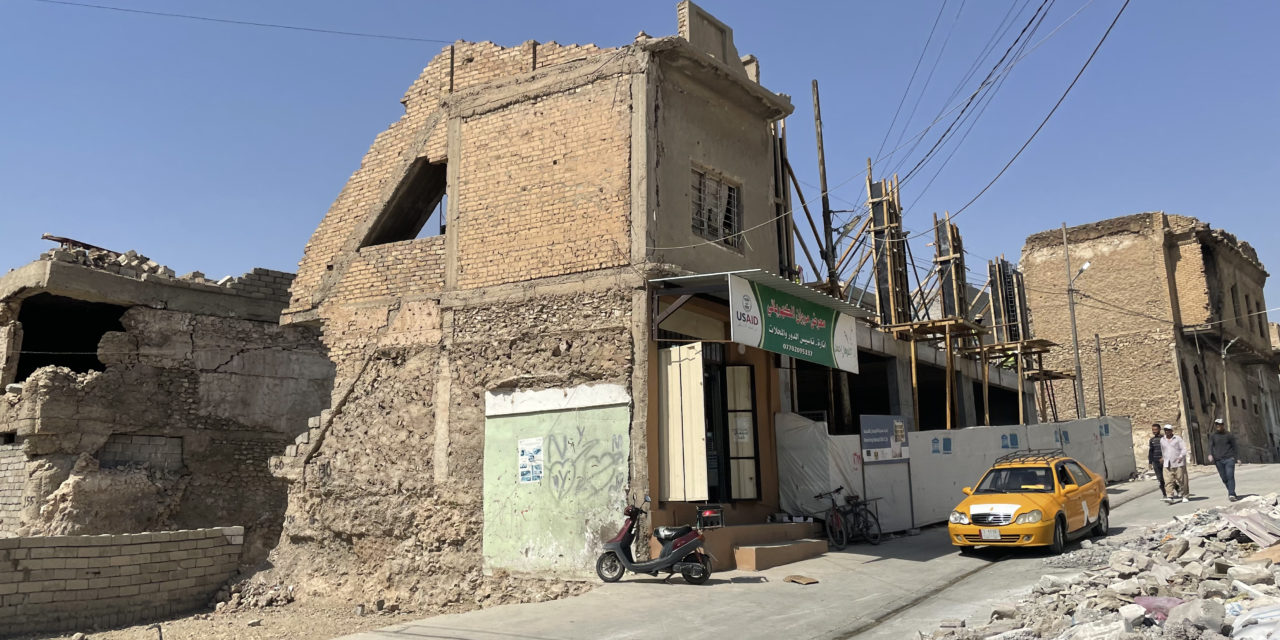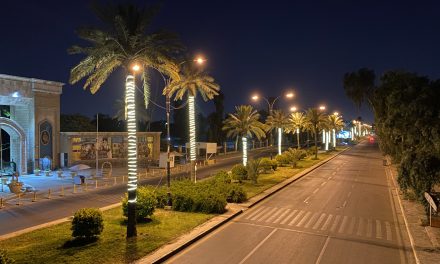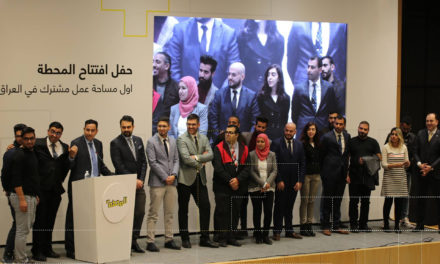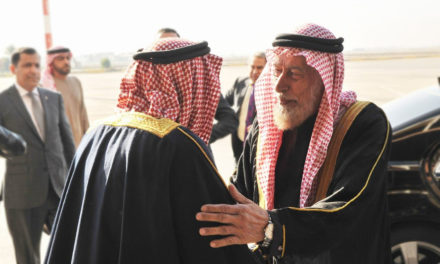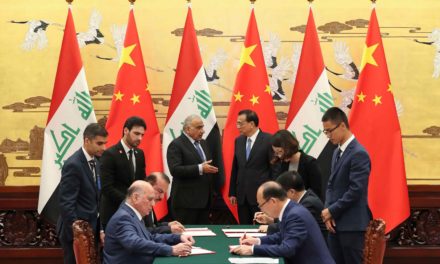The rise of ISIS and the territorial gains they made in Iraq provide insights into the limitations of post-2003 democratic change. The new political system failed to protect the country from losing over a third of Iraq’s land and its second-largest city, Mosul. However, non-governmental organizations (NGOs) and international organizations (IOs) also failed to fully understand the local context. NGOs played a critical role in filling the gap left by inadequate government services in delivering necessities such as food, water, shelter, and medical assistance to those affected by the conflict. The first action taken by the United Nations Office for the Coordination of Humanitarian Affairs (OCHA) was declaring the strategic response plan for Iraq in 2014, prioritizing internally displaced persons (IDPs), health, protection, and food insecurities. Since then, the United Nations (UN) and other humanitarian partners have worked to provide aid during the conflict in the liberated areas.
The country’s needs were obvious, and the damage of the ISIS war was extensive. It was evident that urgent assistance was required in Iraq, and one does not need an evaluation to recognize how devastating the situation was for families who were forced to leave their homes. However, these needs were not meant to be met randomly. The aid provided in Iraq (to those affected by ISIS or displaced by them) was in the form of programs designed to address the most pressing needs, and these programs were developed in cooperation with the local government and other local NGOs, interacting with the people and understanding their actual needs. As with any crisis, certain individuals capitalized on the situation, and the funds that were arriving to serve that purpose ended up being used for personal gain. Consequently, the reputation of several NGOs and IOs was notably impacted.
I always dreamed of working as a humanitarian aid worker for an NGO, the UN, or another IO. I was lucky to get the chance to volunteer with multiple local NGOs in Iraq, as my college years in Baghdad took place during the liberation from ISIS when efforts were directed at rebuilding communities torn apart by war. I was involved in multiple stability efforts to enhance democracy and civic engagement programs like education and awareness-raising.
However, before delving into the altruistic impulses driving humanitarianism, it was clear to me that there are certain challenges that the humanitarian sector faces regularly. Usually, conflict opens a new job market in any affected country, thus creating job opportunities that appeal to some individuals more than the humanitarian side. These jobs are not sustainable in general, but for a fragile country like Iraq, they could last for a very long time, which may affect the recruitment of qualified humanitarian workers. A friend told me once that, as an expat, you have two options: the first is if you want a great salary in a dangerous country like Iraq, all you need are connections; the second is if you want a great overseas job with a decent salary, and that is usually in Southeast Asia or Jordan, and for that, you need to be a social person who can network effectively. The situation is not very different for nationals, which is also based on who you know, your network, and your connections.
I was lucky to land a job in this sector after graduating as a part of a livelihood project to support fresh graduates in acquiring work experience. I earned an internship after finishing the training on developing sustainable livelihoods, and the internship was also with a well-known NGO in Baghdad. Firsthand, I learned about the NGO system in Iraq, its legal status, the depth of its structure, funding sources, and the sister NGOs that support their work. My start involved mostly hands-on work on multiple projects related to issues such as human rights, environmental protection, social justice, outreach, and education. One of the unique aspects of working in that sector is that the work can be fulfilling, as you are often working towards a mission that is aligned with your personal values and beliefs.
However, the dream I had about working in civil society quickly evaporated in the face of reality. In many cases, NGOs have strong internal controls and accountability measures in place to prevent and detect corruption. These can include rigorous financial management policies, codes of conduct, and other accountability policies by the government to follow up closely on how the funding is being expended. Even though the NGO I worked for had all the quality assurance measures mentioned, I soon came to the conclusion that talking about transparency was simpler than working to promote it.
First and foremost, the active players in this field are people who have worked since the establishment of the civil movement after the fall of Saddam Hussein’s regime in 2003. This was seen as a turning point in the formation of a more robust civil society. International funds became a greater part of the country’s political and social landscape, including civil society.
However, due to the security threats and restrictions on their activities by government authorities, international NGOs (INGOs) had to involve more Iraqis in the process and encourage them to contribute so they could take the lead on the change that was necessary for the future of Iraq. This new cooperation emerged as local NGOs worked alongside the INGOs and supported each other in the implementation of all the programs on the ground. My managers in all the jobs I served in were deeply rooted in the movement at that time, and they started by working with INGOs but ended up building their own local NGOs. Despite all the security threats, these local NGOs were able to establish a solid foundation and dominate the field in general.
The funds that flooded in after the ISIS takeover were enormous and accessible to everyone, compared to the requirements that accompanied them. Positions were filled based on favoritism rather than merit, and this resulted in a lack of diversity that later defined the NGO as a family-based workplace. Families passed jobs in some NGOs to the new generations of their family, dismissing any standards that aligned with the mission.
As funds allocated for each country decreased every year due to conflict in other parts of the world, this made funding more difficult to secure for NGOs in Iraq. This resulted in many organizations working outside of their area of expertise or spreading themselves too thin. Regardless of each NGO mission, I personally witnessed the war of chasing funds among NGOs that don’t have a certain amount of experience in a field but still wanted to get part of its funds. The organization I was with worked in emergency response, health, food security, shelter and non-food items, protection, social enterprise, rural development, education, water and sanitation, healthcare, women’s rights, economic development, policies, elections, and the environment. The amount of expertise required to work on each of these programs did not exist, but they still got support on each path.
When civil society is put in such a position, competing for funding with so many different areas to work on, it becomes difficult for that civil society organization to design projects that address the underlying causes of a problem. I could see this in my work, which meant I would see projects designed that would be ineffective or even have counterproductive outcomes. The NGOs used all the community problems to create a story that could be used to convince INGOs and IOs to fund it. This was extended to the point that INGOs didn’t have a limit to say, “No, this is the government’s job,” and I believe that this limit was also misunderstood by the NGOs themselves. The gap caused by misunderstanding the real role resulted in unsustainable programs that did more harm than good. These programs that are poorly planned and implemented may result in wasted resources and missed opportunities as funding and effort is expended without producing meaningful results.
I moved around multiple NGOs since my first job and got to know more of the main players in the field; there was always a familiar face wherever I went. These people were sometimes my managers and colleagues. This whole experience reinforced the ideas I generated from the beginning. Some organizations that have long been established to champion human rights, promote gender equality, and provide support to women in various fields have been tainted with corruption, hindering their efforts to address the country’s issues effectively. Corruption may seem like a big word to others, and it might be interpreted differently, but for me, it can describe small behaviors such as changing the financial receipts to make expenditures higher than the actual amounts. Or, sometimes it’s when an NGO brings only one employee to do all the work of their projects and receives one fixed salary that is always different from what was mentioned in the allocated amount of this position on each project budget. This was always justified by saying that the other salaries would revert back to the NGO to preserve its sustainability in light of unpredictable international funding.
Indeed, the situation was different for INGOs; they didn’t have to care about holding these small amounts of money for their sustainability but more about covering these NGOs to keep the work ongoing. For them, a 1 million USD program on vocational training was a non-issue, while the village lacks the basic infrastructure and logically can’t handle everyone becoming a business owner (because later, who will be the customer?). NGOs also received grants from INGOs to attend and host events that gathered the same people from the NGO community to talk about the same problems with no solutions proposed.
Moving between these NGOs, working on both programs and monitoring and evaluation, and interacting with different contexts gave me a perspective on how operations run. However, the problem lies in the stereotypical ways that some NGOs advocate for community issues and their false beliefs about the issues they are advocating for. Additionally, there is a contradiction between what they say and what they do on the ground. For instance, one of my female managers, who is a well-known feminist, prefers my male counterpart and advocates for him in all situations.
Through the course of my career in the Iraqi NGO space, I came to the conclusion that in order to use the resources the world is offering to Iraq in a proper way, we need to widely spread humanitarian and civil society work in the community and make it more systematic to preserve its sustainability and make it accessible for all coming generations. This will require a shift away from rushed work and towards a more sustainable, community-driven approach. Rather than just providing short-term aid, NGOs should focus on empowering local communities and building their capacity to create long-term change. This might be a common term, as you hear from several IOs and NGOs in every official meeting, but my experience disagrees with it. Civil society work needs to rely on new approaches that have been gaining popularity in recent years, such as the use of project management software to streamline workflows and reduce time waste. Digitizing the work could help reduce human interference and, therefore, any misuse of the resources. Besides that, civil society work needs a revolution to remove the stereotypical programs with ineffective activities that spend thousands with no real impact. The same policy would have to be applied to the administrative costs. NGOs and IOs should adopt advanced technology to save time and money. With this work approach, teams can track tasks, deadlines, and progress in real-time, eliminating the need for endless meetings and status updates.
NGOs and IOs should strive to avoid becoming like government bureaucracies, as this can lead to time and resource waste that detracts from their mission of creating positive change. To do this, NGOs and IOs should prioritize efficient and community-driven approaches that empower local stakeholders and reduce the need for hierarchical systems. By utilizing technology, prioritizing impactful activities, and streamlining administrative processes, NGOs and IOs can work smarter and achieve their goals more effectively. Ultimately, this will allow them to create a more sustainable and lasting impact in the communities they serve.
This essay is part of a special series – Iraq after 2003: The Voices of Iraqi Women

Mariam Al-Nuaimi
Mariam Al-Nuaimi is a project manager working for humanitarian and development organizations in Iraq. Her area of interest is youth development and gender rights. Her passion is integrating technology with humanitarian work.

